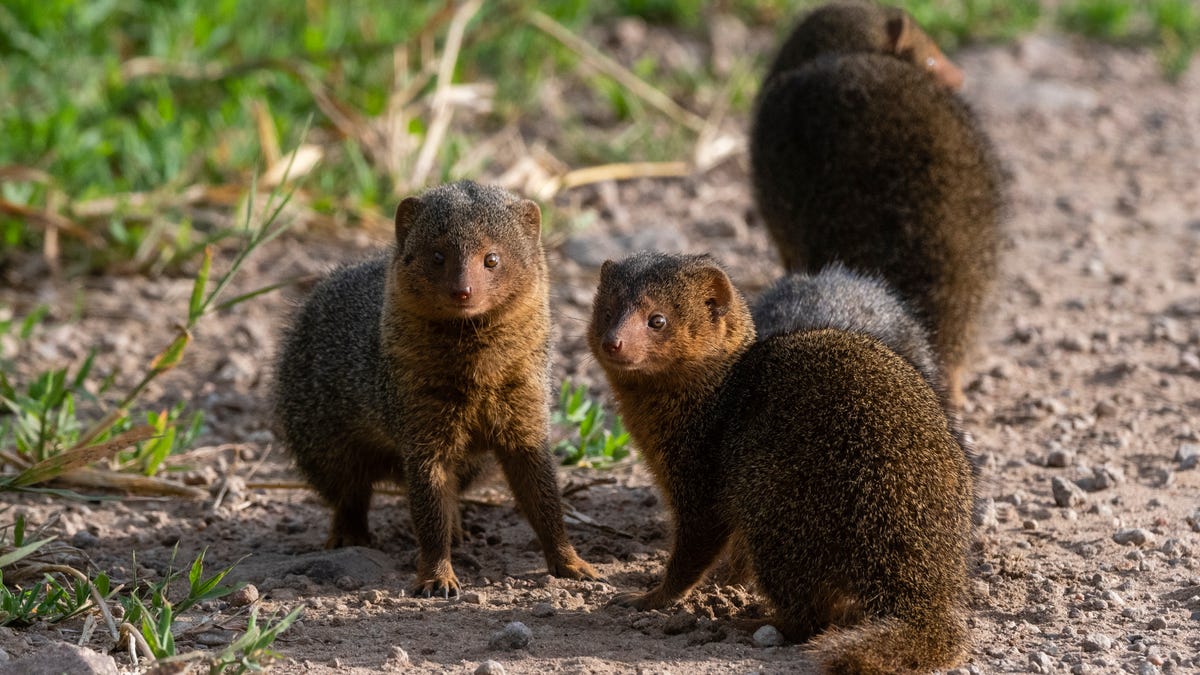Dwarf mongooses remember bullies and shun them at bedtime
Africa's smallest carnivore punishes members of the community that fought over food by grooming them less at the end of the day.

If dwarf mongooses spoke English, they might have their own version of the saying "you made your bed, now lie in it."
New research shows that the tiny carnivore, which measures less than a foot and weighs less than a pound, remembers which members of its group started fights over food throughout the day. What's more, on days where they are seen as aggressors, mongooses receive less grooming, an important part of the social animal's nightly routine.
"Being groomed helps with hygiene and reduces anxiety, and grooming underpins social relationships, so is core to social life," said Andy Radford, professor of behavioral ecology at University of Bristol and one of the study's authors, in a press release Tuesday about the study.
The study adds to our understanding of how animals not directly involved in a conflict respond well after the conflict is over.
Researchers recorded the sounds of mongooses fighting over food and then replayed them throughout the day. Replaying the recording made it seem as if the aggressive mongoose was picking on the same victim throughout the day. By day's end, even mongooses not involved in the recorded fight tended to avoid grooming the apparent bully.
"This shows that dwarf mongooses keep tabs on conflict occurring between their groupmates. They can identify bullies just from the vocalizations given during disputes, store this information and implement a delayed conflict-management strategy, in this case giving the bully the cold shoulder before bedtime," said Amy Morris-Drake, the study's lead author and a researcher at University of Bristol, in the release.
Other research has shown that some monkeys, baboons and even wasps will change their behavior toward community members involved in fights. Dwarf mongoose behavior after conflict adds to the complex picture of conflict management in the animal kingdom.

